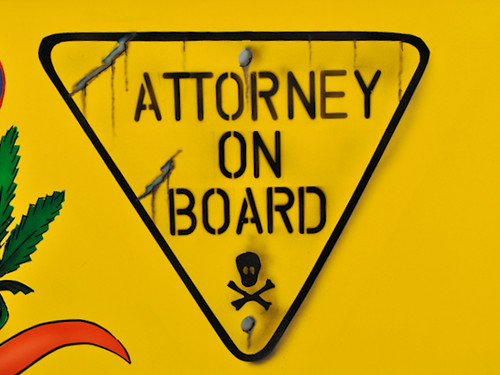 It’s popular – and way too easy – in public relations and social media to say that lawyers get in the way of everything. When preparing announcements, we dread the legal review because it holds up the process, and potentially takes the fun out of what we want to do because – what? – it might get the client sued?
It’s popular – and way too easy – in public relations and social media to say that lawyers get in the way of everything. When preparing announcements, we dread the legal review because it holds up the process, and potentially takes the fun out of what we want to do because – what? – it might get the client sued?
In truth, when an organization is working and communicating well internally, the legal department understands the limits and, rather than being some nay-saying gatekeeper, becomes more of a guiding hand on the path to – well, not getting sued.
Still corporate legal departments are things we need to contend with on the professional side of social media, and I have seen that come up a bit more lately in two area in particular. The first, social media policies, and the second, copyright and intellectual property use.
Social Media Policy
It has long been good practice to tell employees not to bad mouth their employees – surely, there is no shortage of advice telling careerists to keep their opinions to themselves on their social media channels. But is bad-mouthing work or colleagues a fireable offense or protected free speech? The National Labor Relations Board recently made it clear that the latter is the case – usually. Where’s the line? Consider the source: the National Labor Relations Board is concerned about protecting speech about working conditions, while offensive and threatening speech still does not pass muster. So, to take examples from the NLRB rulings: complain about being overworked, but don’t wish a painful death on your customers. I’m sure there’s a lot of grey area yet to be examined, but this is still big news.
That sounds fair – now, expect a flurry of Tweets from social media professionals complaining about having to work late re-writing social media policies.
Further reading: “Social Media Policies Come Under Legal Review” by Chris Thilk at my employer’s VoceNation blog. I have nothing but nice things to say about my place of employment, in case you are wondering.
Intellectual Property and Copyright
I recently read a post by my friend Julie Pippert on how to share content in social media. It’s a common sense guide for any person using social media to make sure they attribute content and images; a mini-etiquette manual. However, I came upon it while in “corporate social media mode” and immediately thought “this is not nearly enough for the lawyers.” Frequently, the wish to share something your company does not own is met with extreme caution: do you have explicit rights or permission to reproduce, is what you plan to do considered “commercial,” are you sure you won’t get a takedown notice or even sued? All of a sudden we are in a different world, where this concern can lead to over-use of stale (but paid-for) stock images on blogs and skittishness in getting into social platforms like Pinterest are common. Navigating both of those obstacles successfully takes skill but has its rewards.
Lest this be construed as a complaint about work (see the first section!), the fact is the lawyers are, generally and in principle, correct – at least in their caution. Where that line of what you can and can’t use lies is dependent on that internal communication I mentioned at the beginning of the post.
The law is our friend – one of those complicated friends that is too smart for you and requires patience to live with.
